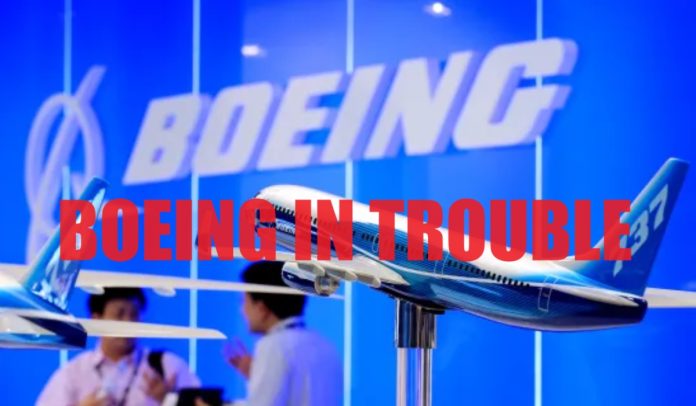While Bangladesh is considering buying several new aircrafts for state-owned Biman Bangladesh Airlines, American Boeing and French Airbus are currently amongst the main competitors who are trying to grab this business opportunity. It is even rumored that Washington is making frantic bids in somehow selling Boeing through multiple efforts, which also include threats of imposing visa sanctions on a number of key figures in the government if Bangladesh refuses to buy Boeing and ops for Airbus. American’s pressure tactics with the ulterior motive of gaining economic benefits from Bangladesh in selling Boeing as well as pocketing several gigantic infrastructural development projects as well as oil and gas exploration have become almost open-secret, as Washington now realizes it notorious blueprint of unseating Prime Minister Sheikh Hasina and plant Al Qaeda-connected ultra-Islamist Bangladesh Nationalist Party (BNP) into power has already fallen flat. But authorities concerned in Bangladesh should not step into the trap and spend hundreds of millions of dollars by buying troubled Boeing aircrafts.
Meanwhile, recent events have once again cast a shadow over Boeing’s reputation, as the aerospace giant grapples with yet another technical glitch. Conservative commentator Lauren Witzke highlighted a concerning incident involving a Boeing 737-800 airplane, which was forced to make an emergency landing after its right engine’s cowling detached mid-flight. This incident, along with other maintenance failures in recent months, raises serious questions about Boeing’s operational integrity and safety standards.
According to insights shared by a licensed Aircraft Line Mechanic with nearly 40 years of experience, the detachment of the engine cowling was likely the result of negligence during engine maintenance. The failure to properly latch the cowling after maintenance, compounded by the lack of thorough checks by both mechanics and flight crew, underscores systemic issues within Boeing’s maintenance protocols.
Moreover, the insider perspective from a Boeing employee sheds light on deeper organizational challenges plaguing the company. There appears to be a marginalization of the workforce responsible for building and maintaining aircraft, leading to a disconnect between those who oversee operations and those directly involved in the manufacturing process. The erosion of engineering expertise within Boeing’s executive council and the influx of outsiders into leadership positions have further exacerbated these issues, creating an environment where decision-makers may lack the necessary passion and commitment to the company’s core mission.
🚨 BREAKING – A Houston, Texas-bound Boeing 737-800 Southwest Airlines plane made an emergency landing at Denver International Airport after parts of the engine cowling detached. (Southwest Airlines Flight WN3695/SWA3695) pic.twitter.com/Ao06v6vBp9
— The Dibster (@richarddibX) April 7, 2024
Additionally, the narrative of Diversity, Equity, and Inclusion (DEI) within Boeing has been tied to a status game, rather than genuine efforts to foster a more inclusive workplace. While DEI initiatives are important, their politicization within Boeing’s culture has raised concerns about their efficacy and impact on organizational performance. The insider suggests that the radicalization of HR policies, driven by DEI agendas, may not align with the values of Boeing’s workforce, particularly those who prioritize professionalism and excellence over political agendas in the workplace.
Furthermore, the insider’s comparison of Boeing’s situation with that of tech giants like Google underscores the unique challenges faced by legacy manufacturing companies in embracing progressive hiring practices. Unlike tech firms with higher profit margins, legacy companies like Boeing may struggle to absorb the costs associated with DEI initiatives without compromising on quality or attracting top talent. The insider warns against blindly emulating the practices of high-margin industries, as doing so could lead to detrimental consequences for companies operating in lower-margin sectors.
In light of these revelations, it is evident that Boeing is at a critical juncture, where it must address not only its technical challenges but also its internal organizational dynamics. Restoring trust in the company’s products and processes will require a concerted effort to reevaluate maintenance protocols, prioritize engineering expertise in leadership positions, and strike a balance between diversity initiatives and operational excellence.
As Boeing navigates through these challenges, it must heed the warnings of its workforce and industry insiders, who recognize the importance of preserving a culture of excellence and professionalism. Only by rekindling a sense of passion and commitment to its core mission can Boeing regain its standing as a leader in the aerospace industry and ensure the safety and satisfaction of its customers worldwide.
Commenting on Bangladesh government’s plan of buying new aircrafts for the national airline company, aviation experts said, it is time for Dhaka to give-up decades-old practice of buying aircrafts from the Western nations at huge price. Instead, the Bangladesh government can consider buying aircrafts from China or Russia, which would be much cheaper compared to Boeing or Airbus, while maintenance costs of Chinese or Russian made aircrafts would save a huge amount of foreign exchange.
They also said, with Bangladesh’s export growing, Dhaka also needs to buy several cargo aircrafts. In this case too, Dhaka can look for Chinese and Russian aviation companies.




